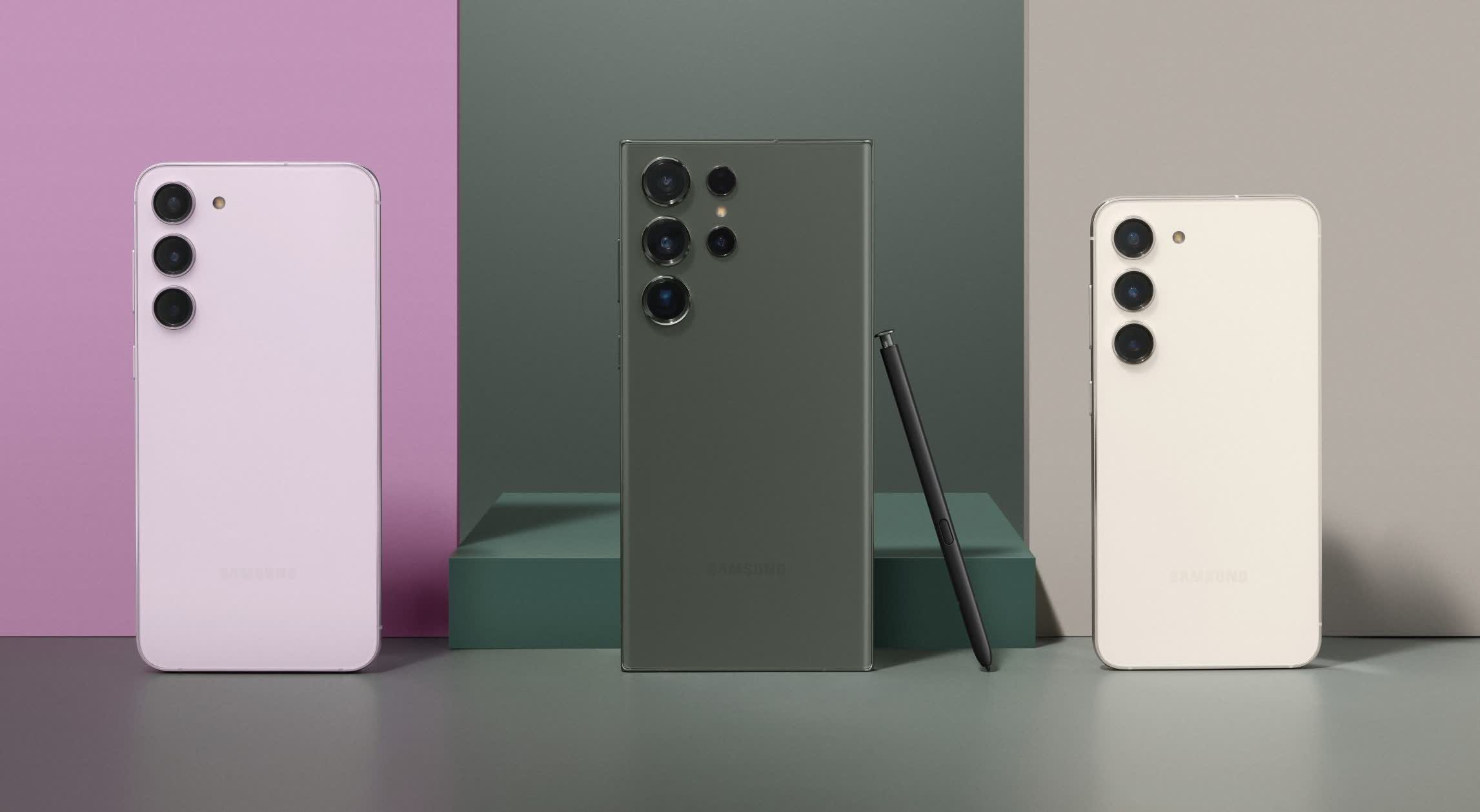WTF?! While phones are advertised as having a specific amount of storage, many new buyers are shocked to find that a significant chunk is already taken up. This is especially true of the Galaxy S23, which, thanks to Samsung's version of Android, comes with 60GB of storage already filled. That's four times what the stock version of Android consumes on the Pixel 7 phones and around double what Windows 11 takes up on a PC.
Samsung unveiled the Galaxy S23 series last week. Storage capacities vary from 128GB to 1TB, but Ars Technica reports that 60GB is used for the system partition straight out of the box. That's a hefty chunk, especially for those who purchase the handset with the least amount of storage.
For comparison, the stock version of Android 13 used in the Pixel 7 and 7 Pro takes up just 15GB of internal space. But the Galaxy S23, which runs on Samsung's One UI 5.1 custom skin on top of Android 13, is packed with bloatware. Owners of the company's handsets will be familiar with how it duplicates many Google apps---browser, app store, messaging app, keyboard, etc.---adding its own versions to a device and taking up space. What's even more annoying is that these apps usually can't be removed.
Additionally, Samsung has a reputation for creating low-quality code, and it sells space on its devices to companies who want their apps to come pre-installed. Facebook, Netflix, LinkedIn, Microsoft Office, and others are often found already installed on Samsung handsets, and there's usually more bloatware if you buy a phone from a carrier. Again, many of these apps can't be uninstalled.
A/B has been replaced with virtual A/B, though. And in Android 12, virtual A/B added support for compressed snapshots. VABc is almost as space efficient as non-A/B is. I'm not sure space is why the S23 doesn't have seamless updates. It might be something else. pic.twitter.com/gzBX2qkyjP
--- Mishaal Rahman (@MishaalRahman) February 3, 2023
That 60GB figure is especially surprising because Samsung is the only major Android phone company that doesn't take advantage of Android's A/B Seamless Updates feature. This uses two copies of the operating system, one offline in the background and an online one that's being used. When an OTA update is pushed out, the offline copy can be updated while the online OS keeps running. When the update is complete and the phone reboots, the device switches to the updated OS. This drastically reduces update times, which can take up to 30 minutes on devices with a single operating system, but it does consume some storage space.
The bad news for consumers is that the Galaxy S23 series doesn't come with expandable storage. Though for Samsung, it means people are more likely to opt for the more expensive models with larger capacities.
